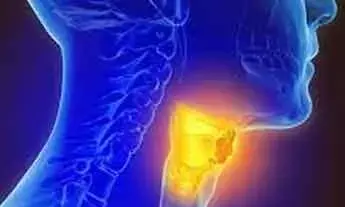- Home
- Medical news & Guidelines
- Anesthesiology
- Cardiology and CTVS
- Critical Care
- Dentistry
- Dermatology
- Diabetes and Endocrinology
- ENT
- Gastroenterology
- Medicine
- Nephrology
- Neurology
- Obstretics-Gynaecology
- Oncology
- Ophthalmology
- Orthopaedics
- Pediatrics-Neonatology
- Psychiatry
- Pulmonology
- Radiology
- Surgery
- Urology
- Laboratory Medicine
- Diet
- Nursing
- Paramedical
- Physiotherapy
- Health news
- Fact Check
- Bone Health Fact Check
- Brain Health Fact Check
- Cancer Related Fact Check
- Child Care Fact Check
- Dental and oral health fact check
- Diabetes and metabolic health fact check
- Diet and Nutrition Fact Check
- Eye and ENT Care Fact Check
- Fitness fact check
- Gut health fact check
- Heart health fact check
- Kidney health fact check
- Medical education fact check
- Men's health fact check
- Respiratory fact check
- Skin and hair care fact check
- Vaccine and Immunization fact check
- Women's health fact check
- AYUSH
- State News
- Andaman and Nicobar Islands
- Andhra Pradesh
- Arunachal Pradesh
- Assam
- Bihar
- Chandigarh
- Chattisgarh
- Dadra and Nagar Haveli
- Daman and Diu
- Delhi
- Goa
- Gujarat
- Haryana
- Himachal Pradesh
- Jammu & Kashmir
- Jharkhand
- Karnataka
- Kerala
- Ladakh
- Lakshadweep
- Madhya Pradesh
- Maharashtra
- Manipur
- Meghalaya
- Mizoram
- Nagaland
- Odisha
- Puducherry
- Punjab
- Rajasthan
- Sikkim
- Tamil Nadu
- Telangana
- Tripura
- Uttar Pradesh
- Uttrakhand
- West Bengal
- Medical Education
- Industry
Laryngeal botox injection improves work productivity in patients of spasmodic dysphonia: Study

A disordered voice can affect an individual across both work and non-work-related life domains. There is insufficient research testing on the effect of spasmodic dysphonia or its treatment with botulinum neurotoxin (BoNT) injections on work productivity.
A recent case series study conducted at the Department of Otolaryngology Head and Neck Surgery, University of Washington, Seattle, Washington found that employed patients with spasmodic dysphonia reported voice-related work productivity impairment, which improved significantly 1 month after treatment with botulinum neurotoxin injection.
The study is published in the JAMA Otolaryngology- Head & Neck Surgery.
Tanya K. Meyer and associates assessed whether employed patients with spasmodic dysphonia experience voice-related work productivity impairment before botulinum neurotoxin injection, and had a 10% or greater improvement in productivity 1 month after treatment with botulinum neurotoxin injection.
The authors enrolled a total of 101 patients, out of which only 75 completed the study. The eligible participants completed the following validated outcomes instruments immediately before and 1 month after outpatient laryngeal botulinum neurotoxin injection: the Work Productivity and Activity Impairment instrument (WPAI), Voice Handicap Index (VHI), and WorkHoarse. Demographic, comorbidity, and occupational voice use data were also collected at baseline.
The changes in outcome measures were tested using a paired 2-tailed t test. Exploratory subgroup analyses were analyzed with multivariable linear regression, adjusting for demographic, comorbidity, and voice use variables.
The following key findings were observed-
a. The mean (SD) age of the 75 completing participants was 55.7 (11.8) years and 53 (71%) were women.
b. The participants who completed the study had mean (SD) voice-related work productivity impairment of 43% (27%) at baseline and 22% (23%) at 1 month after botulinum neurotoxin injection (difference, 20% [27%] improvement; 95% CI, 14%-27%; effect size, 0.74).
Hence, the authors concluded that the association of spasmodic dysphonia with voice-related work productivity appeared greater in women than men with comparable outcomes with botulinum neurotoxin treatment, but this exploratory sex-associated difference requires independent validation.
doi:10.1001/jamaoto.2021.1745
Dr. Nandita Mohan is a practicing pediatric dentist with more than 5 years of clinical work experience. Along with this, she is equally interested in keeping herself up to date about the latest developments in the field of medicine and dentistry which is the driving force for her to be in association with Medical Dialogues. She also has her name attached with many publications; both national and international. She has pursued her BDS from Rajiv Gandhi University of Health Sciences, Bangalore and later went to enter her dream specialty (MDS) in the Department of Pedodontics and Preventive Dentistry from Pt. B.D. Sharma University of Health Sciences. Through all the years of experience, her core interest in learning something new has never stopped. She can be contacted at editorial@medicaldialogues.in. Contact no. 011-43720751
Dr Kamal Kant Kohli-MBBS, DTCD- a chest specialist with more than 30 years of practice and a flair for writing clinical articles, Dr Kamal Kant Kohli joined Medical Dialogues as a Chief Editor of Medical News. Besides writing articles, as an editor, he proofreads and verifies all the medical content published on Medical Dialogues including those coming from journals, studies,medical conferences,guidelines etc. Email: drkohli@medicaldialogues.in. Contact no. 011-43720751


